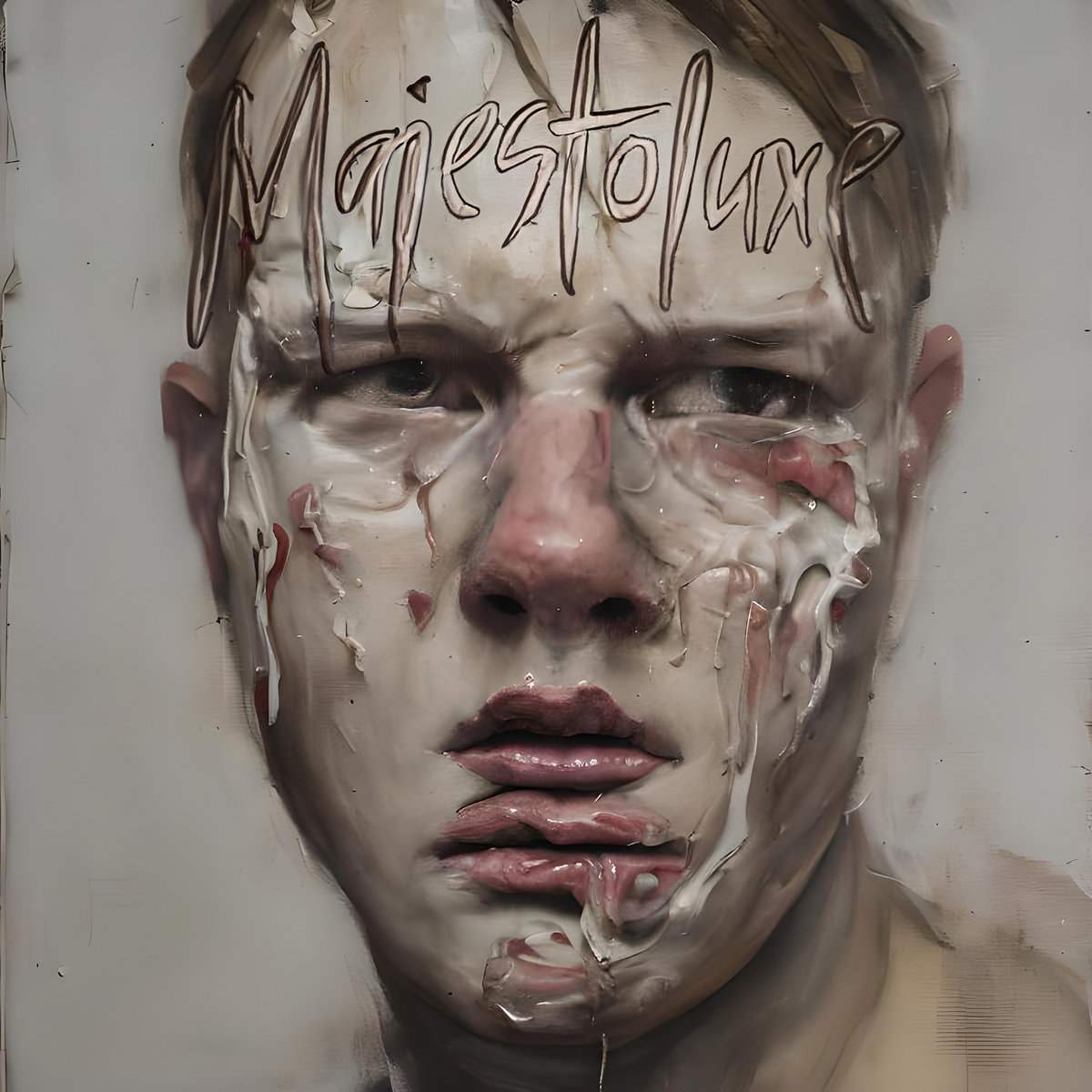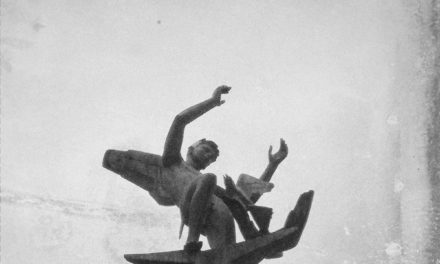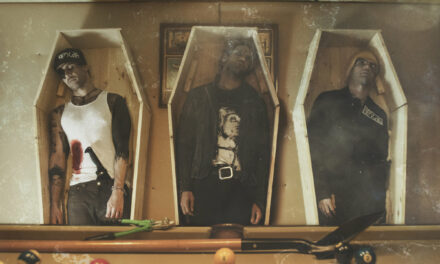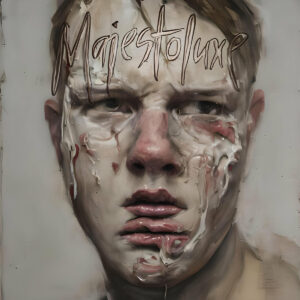
Majestoluxe
Solid State
Icons Creating Evil Art
Swedish producers Conny Fornbäck’s Majestoluxe material is a very specific kind of minimal industrial, one that focuses on twisting and wringing as much as possible out of gnarled synth loops and punky arrangements of metallic percussion. It’s a sound that relies on both Fornbäck’s growly voice, and deliberate choices in where to place breakdowns, builds and variations to keep things intriguing. A cut like opener “Assertive Indifference” is little more than a single loop of heavily filtered and saturated body music style bass, and a vocal that holds back on the verse before laying in on the chorus, creating and releasing tension as its drums double and halve themselves. Alternately, a cackling guest shot from J△3 sEUQCAJ of à;GRUMH… is made all the more horrifying by how the little there is to detract from his drawling and screams, tiny spikes of peaky synth and 16th note percussion hits that lay below the surface of the mix. When closer “El Popeah” does break out with a manic arrangement of FM bass and ranted vocals it feels all the more unhinged for the slow boiling builds of each cut that preceded it.
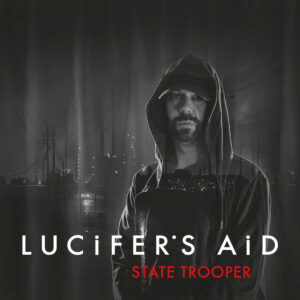
Lucifer’s Aid
State Trooper
Progress Productions
Springsteen and industrial aren’t quite as strange bedfellows as one might think upon first hearing of Swedish industrial act Lucifer’s Aid’s trio of covers taken from the Boss’ immortal Nebraska. Between the mutual admiration and covering of material between Springsteen and Suicide and Springsteen’s confrontational and purely noisy variations of some of his most famous works, Springsteen can be a lot heavier than his biggest AM hits suggest. But even given the working-class desperation and bleakness which makes Nebraska one of the darkest albums ever laid to wax to this day, the gambles Carl Nilsson takes on State Trooper can be rather extreme. The stately lament of “My Father’s House” is closest to the original, the sober and fragile arrangement doing good by that most foundational of Springsteen’s themes, that which is left unsaid between fathers and sons. Carrying “Nebraska” itself away from its ash-white harmonica, six-string, and whispering chimes into Kite-like synthpop grandeur (complete with DX7 bells!) yields mixed results: yes, there is something of the transcendent annihilation Springsteen’s version of spree killer Charles Starkweather yearns for in all this adornment, but something of the knowing ease with which the narrator reconciles himself to his fate and nature is lost. “State Trooper” finds that balance more easily – the mounting panic in the repetitive bluesy groove of the original is maintained, but in adding a sense of cocky swagger (a la Black Strobe and Depeche Mode’s similar electro repositionings of blues riffs) to the lyrics, Nilsson invites the provocative idea that the narrator might be secretly hoping for an excuse to snap and unleash repressed hell on any cop who does pull him over.

